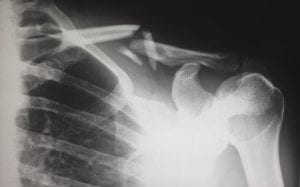It is clear that proving self-employed income losses could be difficult, particularly if you would try to handle the negotiations on your own.
When it comes to car accident claims under personal injury law, compensation for the victims has a wide coverage. While you will get the value of financial losses caused due to injuries and property damage, lost wages are also covered in the claim. After all, missing work or losing your job has major financial implications and you rightfully deserve to claim their value. However, things can get complicated if you are self-employed because proving lost wages is not as straightforward as it is for salaried employees. But you still must get compensation for loss of income or business opportunities even if you are self-employed.
You need to be aware that the process for ascertaining damages in the case of such victims is totally different from that for regular employees. A clear idea of the process will help you calculate the fair value of the settlement and secure damages for the losses incurred, regardless of your profession. Let us explain the concept of lost wages for independent individuals in detail. Before doing so, it is important to first understand how they are calculated and claimed for regular employees.
Proving lost wages for regular employees
If you work regularly for an employer, collecting information about lost income is relatively simple. You will just need your boss or supervisor to give you a letter of employment on company stationery. It should include your personal details along with your pay rate, the number of normal working hours, and the number of hours missed following the accident. Further, your lawyer will use your wage statements or pay stubs to document your regular income. Additional documentation such as income tax returns for prior years may be required in some cases. For people working in a service industry, tips often comprise a significant part of the income. You will need to furnish a reliable paper trail or tax returns to validate the total wage loss including tips after the accident.
What if you are self-employed?
A self-employed individual is entitled to claim compensation for loss of income due to an accident, just like a regular employee is. But it is important to understand the difference. Primarily, freelancers, independent contractors, and sole proprietors who work independently come under this category. Since you are not drawing wages from an employer or company, proving loss of income can get tricky for you. But if you have lost earnings you would have made if the mishap had not occurred, you are legally liable to claim them. Such earnings will include future contracts, lost goodwill, lost profits, and missed business opportunities for self-employed people.
Proving lost income for self-employed
An accident can spell a major financial setback, not only because of medical bills but also because of loss of current income and future earning potential. But to claim compensation for lost income, you will need to validate it with tangible evidence. Experts at Hankey Law Office recommend strengthening your claim with proper evidence. For a self-employed victim, the following documents would be needed to prove your income loss and claim it:
- Proof of Past Income: The documents you will need to prove your past income as a self-employed individual include copy of tax returns, 1099s, and detailed bank records. For small business owners, your accounting records or profit and loss statements will make a valid piece of evidence. A longer and steadier income history increase your chances of proving your damages.
- Proof of lost work: Another fact you can prove is an upcoming project that you failed to complete due to the injuries sustained in the accident. Fortunately, you can easily document such losses using canceled contracts from the clients.
- Proof of increased expenses: Lost wages for self-employed individuals may include the extra costs and expenses you had to incur in your absence. For example, you may have to engage someone else to complete work and close contracts. Documentary evidence for such expenses includes invoices and proof of payment to the people you hired.
- Medical evidence: Apart from the current wage losses, you will also need to show the loss of future earning potential, which is best done with medical evidence from your treating practitioner. They may provide you a disability slip or a note recommending that you need to stay off work for a specified period of time.

X-ray of person with broken collarbone; image by Harlie Raethel, via unsplash.com. - Expert opinion: As a self-employed individual, you may not be able to gather adequate documentation to validate your income losses. Similarly, proving complex losses such as goodwill and future opportunities is easier said than done. You can engage a subject matter expert to help you furnish proper evidence that adds value to your compensation claim.
Calculation of the amount of lost income
Once you have adequate proof to substantiate your claim for lost income, you are half sorted out. The key concern now is to calculate the amount of lost income so that you can file for a fair amount of settlement for the damages sustained in the accident. Essentially, the length of time spent out of work represents the severity of the injuries sustained from the mishap. Calculation of the amount is to be done by using your tax returns from the past year as a yardstick. Consider the proportionate value of income lost for the period off work to get the exact amount. Your attorney can help you with the calculations and ensure that you settle for nothing less than what you rightfully deserve. Also, you may seek guidance from a forensic economist if things seem too complicated.
It is clear that proving self-employed income losses could be difficult, particularly if you would try to handle the negotiations on your own. Insurance companies often try to use the situation to their advantage by denying compensation for lost self-employment income on the ground of insufficient proof or documentation. Therefore, having an expert personal injury attorney on board is not a choice for such victims. Ideally, you should look for someone with diverse experience because they will probably have worked for self-employed clients and also understand the complexity of such cases.


Join the conversation!